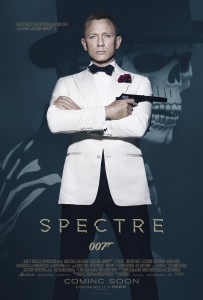By James Madden. Viewed 01.01.11
It’s good to be a King! …or so the saying goes. But for George VI, or “Bertie” as we primarily know him in Tom Hooper’s royal period drama, an early onset speech impediment is the crushing device of a monarch’s reign.
It is said that people fear public speaking more than anything, including death. In other words, a fair portion of the population would prefer to be in the casket, rather than making the eulogy. The King’s Speech looks at the times of George VI (Colin Firth) from the time his father George V (Michael Gambon) was still in power, through to his brother Edward’s (Guy Pierce) short reign and abdication, culminating in his first radio wartime speech as King in 1939.
Two different but not completely unrelated stories are told in Hooper’s film, who until recently had been a director in television series (Cold Feet, Prime Suspect) and mini series (Elizabeth I, and HBO’s multi award winning John Adams). After seeing a series of professional speech therapists, Bertie’s wife (Helena Bonham Carter) finds Australian Lionel Logue (Geoffrey Rush), whose unorthodox methods and humble surroundings prove to be the perfect therapy, leading to a much more fruitful relationship. While these sessions surround the main plot in the film, the subplot between the ruling and reigning of the three Kings sees a much more familiar story. At times, this subplot is much more gripping and by the film’s close, the two merge into some terrific final scenes.
Colin Firth, last notably seen in Tom Ford’s directorial debut A Single Man (for which Firth earned his first Oscar nomination), once again makes a career defining performance. He so perfectly captures the anger and sadness within a man who can blame much of his affliction on family bullying. He is funny, raw and truly captures the essence of a speech stutter. His stammering is painful, and yet magnificent. Do expect to see Firth at the Oscars again this year, perhaps even picking up the prize.
As an Australian living in London with ambitions of being an actor, Geoffrey Rush is perfect in the role of Lionel Logue. Rush gets a great opportunity to play a man who is all about elocution, diction and enunciation. As an actor with talent for creating such specific characters with English, American and his natural Australian accents, Rush is predictably wonderful.
Helena Bonham Carter plays perhaps the most recognisable character, playing Queen consort Elizabeth, later known as The Queen’s Mother. Bonham Carter delivers such warmth, love and integrity that it’s a shame she’s not featured more (a common occurrence in most film’s Bonham Carter appears in). The love for her husband is the biggest task of the character, and Bonham Carter pulls it off easily. It truly feels like Bertie’s obstacles are her obstacles too.

Set in particular grey overtones, perhaps indicative of the forthcoming World War, The King’s Speech looks slick, despite its antiquity. Hooper is a director to watch out for in the coming years, and especially at this year’s Academy Awards. The King’s Speech is a rich in quality, historic in its story (thanks to a brilliant script by David Seidler), and remarkable for making a film about the crushing disability of a man who was sound in mind and body, and who managed to conquer it.
The King’s Speech opened on Boxing Day and is released in Australia through Transmission Films.






1 Comment